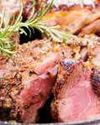
Estuary-dwelling fish and the juveniles of many other fish species inhabiting these waters, eat large quantities of prawns as part of their normal diet.
Both prawns and shrimp belong to the Crustacean family and are cousins of the crab and the lobster. This means that they shed their transparent shell in a process called moulting, in order to grow.
The prawn (scientific name Palaemon) is long legged with a transparent shell. It is found in the rocky pools among weeds on the shores and river estuary beds. There are many species of prawns found.
The shrimp (scientific name Crangon) however, is sandy coloured and is short legged. It is found in the sandy shallows and buries itself in the sands.
For humans, prawns offer excellent taste combined with nutrition. Prawns are a nutritious food, providing high quality proteins and good cholesterol as well as essential trace elements such as iodine and potassium.
Life Cycle Prawns are an “annual crop” - that is they grow to catching size and breed within one year. However, in unfished waters, their natural life may span three years.
The moon dominates the life of a prawn. When young, prawns grow rapidly, moulting their shells to coincide with the full moon (and high tides) each month. After reaching maturity, growth and moulting slow down.
Live river prawns are almost translucent, with distinct blue tips and a slippery, almost greasy feel to their shell. In contrast, king prawns, although possessing some translucency, are cream in colour, with brown body markings and blue legs and tail fins.
This story is from the August - September 2022 edition of Food & Beverage Business Review.
Start your 7-day Magzter GOLD free trial to access thousands of curated premium stories, and 9,000+ magazines and newspapers.
Already a subscriber ? Sign In
This story is from the August - September 2022 edition of Food & Beverage Business Review.
Start your 7-day Magzter GOLD free trial to access thousands of curated premium stories, and 9,000+ magazines and newspapers.
Already a subscriber? Sign In

California Walnut Crop Mid-Harvest Update
Fall is here, and the California Walnut Commission has provided a mid-harvest update on the 2024 walnut crop.

Consumer Trust in Dietary Supplements Demands Third-Party Certification, Reveals NSF 2024 Report
NSF, a leading public health and safety organization, published its 2024 Supplement Safety Consumer Benchmark report earlier his year, aimed at evaluating consumer preferences and safety concerns regarding dietary supplements.

India Bakery Exhibition 2024: A Grand Success at Chennai Trade Center
The India Bakery Exhibition 2024, held from 20th to 22nd September at the Chennai Trade Center, proved to be a resounding success.

Strong Aromas of Blue Cheese
There is no way you can forget your first view, first smell and first taste of any Blue Cheese.

Debunking Cancer Nutrition Myths
Good nutrition is especially important during the treatment of cancer as it helps to tolerate chemotherapy, radiation and surgery better.

Of the Sheep
The features of a goat’s and that of a sheep’s meat are almost similar and are not readily identifiable.

Indian Ethnic Flavors: A New Wave in Beverage Trends
As the world of beverages continues to evolve, a powerful new trend is emerging, reshaping the landscape of drinks with bold, authentic, and distinctly Indian flavors.

Cloves - Strong & Zesty!
Cloves are flower buds harvested before they flower and their tree belongs to an evergreen variety, aptly named as the clove tree, a part of the Myrtle plant family.

World Chefs Congress
New Congress, Old Gold

Tech Takes Over F&B Industry
Technology impacts every facet of our lives. It is reshaping every industry. Artificial Intelligence (Al) and robotics have had transformative impacts on all industries, including the food & beverage sector. Driven by advancements in robotics and Al, routine and repetitive tasks are automated to increase productivity and, thus, enhance profitability. Ashok Malkani examines the effects of technology and robotics on the restaurant industry in India.